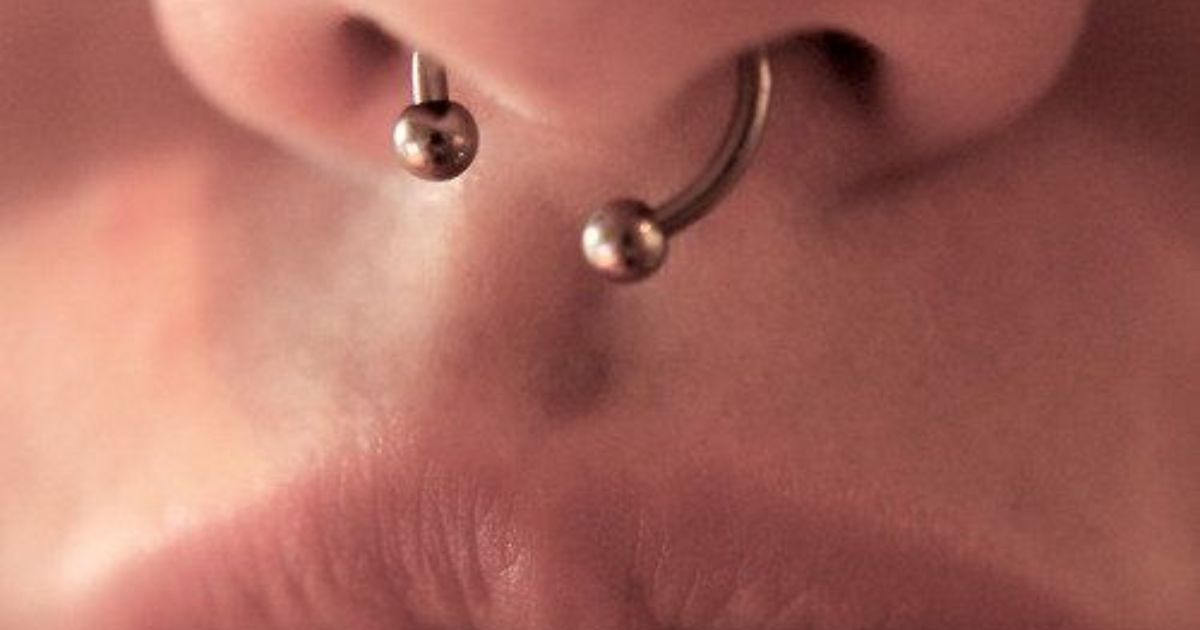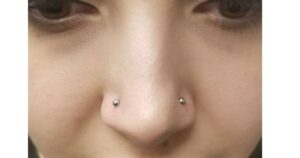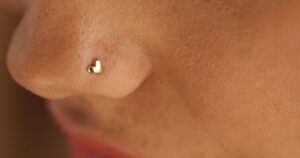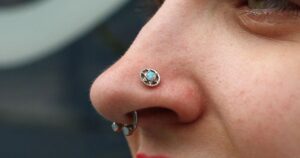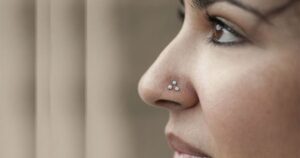Nose piercings involve inserting jewelry through the skin or cartilage of the nose. This popular form of body modification is a cultural and fashion statement for many individuals. The procedure is typically done with a small needle, creating a small hole for the jewelry.
Curious about nose piercings and their significance in the Bible? Wondering if there’s any mention of this ancient form of body adornment in the scriptures? Dive into the intriguing world where tradition and personal expression meet divine guidance.
The Bible does not explicitly mention nose piercings. Some interpret certain scriptures, like Genesis 24:22 and Ezekiel 16:12, to suggest that nose rings were worn in ancient cultures. Views on this vary, with discussions revolving around cultural practices and personal interpretations rather than clear directives.
Piercings in the Bible
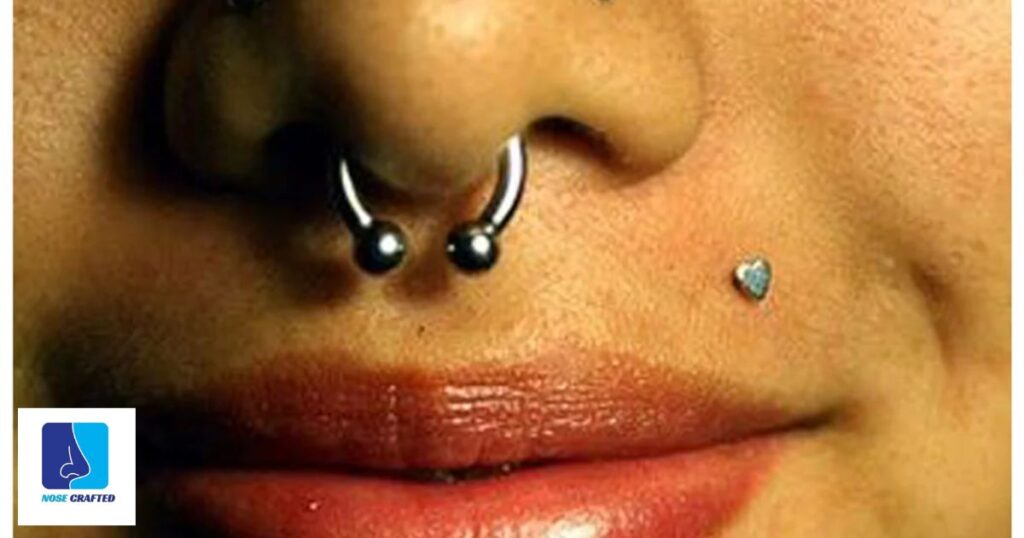
In the Bible, piercings are mentioned in the context of cultural practices rather than specific guidelines on body modification. One notable reference is in Genesis 24:22, where Abraham’s servant gives a nose ring to Rebekah as a sign of betrothal. Ezekiel 16:12 metaphorically describes God adorning Jerusalem with jewelry, including a nose ring. It’s crucial to note that these instances are descriptive rather than prescriptive, reflecting the customs of the time.
While some argue that these references may suggest a level of acceptance, the Bible doesn’t explicitly address modern body piercings. Interpretations of these passages vary among different religious traditions, leading to diverse perspectives on the permissibility of piercings.
Does Leviticus Condemn Piercings?

Leviticus, a book in the Old Testament of the Bible, is often cited in discussions about body piercings. Specifically, Leviticus 19:28 states, Do not cut your bodies for the dead, and do not mark your skin with tattoos. I am the Lord. Some interpret this verse as a prohibition against body modifications, including piercings. It’s essential to consider the historical and cultural context in which this directive was given.
Interpretations of religious texts can vary, and many individuals believe that the context and intent behind body modifications matter in determining their acceptability. While some may choose to avoid piercings based on their understanding of Leviticus, others may view it differently, emphasizing personal conviction and spiritual interpretation.
Piercings Today
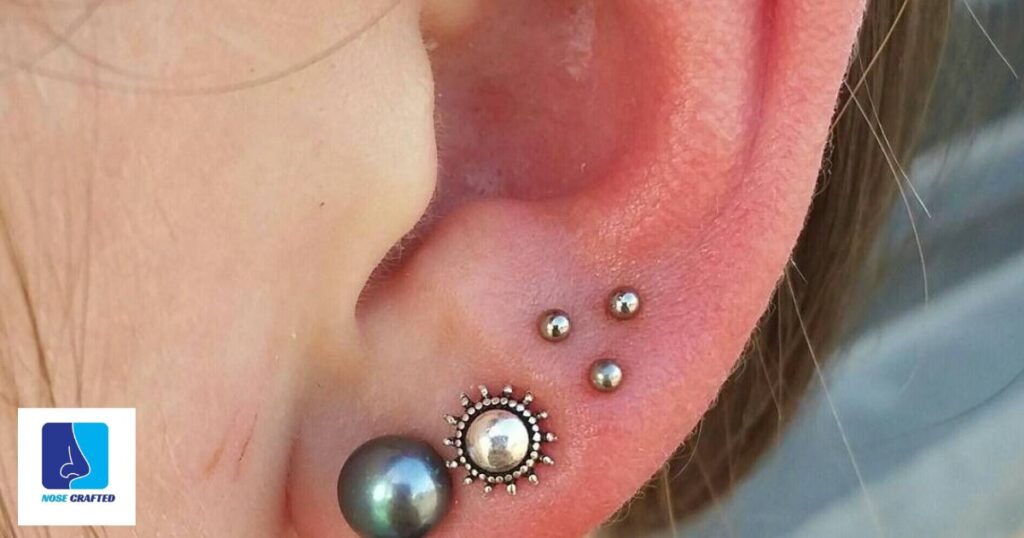
In today’s culture, piercings have become a widespread form of self-expression and individuality. No longer confined to counterculture, piercings adorn people from various backgrounds and ages, reflecting personal styles and attitudes. From the classic earlobe piercings to the more adventurous choices like septum or helix piercings, individuals use body adornment as a way to showcase their uniqueness and make a statement about their identity.
While piercings today are often embraced as a form of fashion and self-expression, it’s important to note the cultural and symbolic significance that piercings hold in different societies. Many people choose piercings not just for aesthetics but also to connect with their heritage, express religious beliefs, or commemorate important life events.
What Does Nose Ring Mean Sexually

Nose rings, like any form of body jewelry, do not inherently carry sexual meanings. The perception of a nose ring being sexually suggestive is subjective and varies across cultures and individuals. It’s essential to recognize that the meaning attached to a nose ring is largely dependent on personal beliefs, preferences, and cultural contexts.
Is Nose Piercing A Sin In The Bible

The Bible does not specifically address nose piercings as a sin. Interpretations may vary, with some referencing cultural practices mentioned in certain scriptures. Whether nose piercing is considered a sin is often a matter of personal belief and theological interpretation, as the Bible doesn’t provide explicit guidance on this particular form of body adornment.
What Does A Nose Ring Mean Spiritually

A nose ring holds diverse spiritual meanings across cultures. In some traditions, it symbolizes wealth, status, or marital status, while in others, it signifies rebellion or self-expression. the Spiritual significance of a nose ring varies widely, reflecting individual beliefs and cultural contexts.
Nose Ring In The Bible Kjv
- Nose rings in the Bible, such as mentioned in Genesis 24:22, signify cultural practices and traditions of that era.
- In biblical contexts, the giving of a nose ring, as seen in Genesis, was a gesture of wealth and generosity.
- Nose rings could represent love and commitment, as seen in stories like that of Isaac and Rebekah.
- The presence of nose rings might have indicated a person’s social or marital status within ancient communities.
- Biblical references suggest a link between nose rings and adornment, emphasizing the appreciation of beauty and individual expression.
- By understanding the role of nose rings in biblical times, individuals can connect with the cultural continuity and historical roots of body adornment.
- The Bible’s narratives provide flexibility, allowing individuals today to make personal choices regarding nose rings based on cultural understanding and personal convictions.
Who Wore Nose Rings In The Bible

In the Bible, nose rings are mentioned in relation to cultural practices rather than specific individuals. Genesis 24:22 describes Rebekah receiving a nose ring as a gift, reflecting customs of that time. While the Bible doesn’t detail specific people who wore nose rings, it provides glimpses into the cultural significance of this adornment in ancient societies.
Piercings for Religious Reasons: Idolatry or Adornment?
Piercings for religious reasons often walk the fine line between idolatry and personal adornment. While some faiths embrace body modifications as a form of spiritual expression, others view excessive piercings as potentially crossing into idolatrous territory. The debate revolves around the balance between honoring religious convictions and avoiding practices that might be perceived as contradicting core beliefs.
The Old Testament and Body Piercing
In the Old Testament, body piercing is subtly referenced, particularly in cultural and historical contexts. While specific mentions are scarce, some interpret passages like Genesis 24:22 and Ezekiel 16:12 as alluding to the practice of wearing nose rings in ancient cultures. The Old Testament’s cultural insights offer intriguing perspectives on body adornment, sparking discussions on tradition and personal expression raising intriguing questions about the significance of body modification, even with a nose piercing.
Nose Piercing and Rebellion
| Aspect | Nose Piercing and Rebellion |
| Cultural Rebellion | Nose piercing has often been associated with cultural rebellion, challenging societal norms and expressing individuality. |
| Historical Significance | Throughout history, nose piercings have symbolized defiance against traditional beauty standards, making a statement of nonconformity. |
| Youth Subcultures | In various youth subcultures, nose piercings are embraced as a symbol of rebellion and a form of self-expression, challenging mainstream ideals. |
| Countercultural Trends | The popularity of nose piercings in countercultural movements reflects a broader trend of resistance against established norms and expectations. |
Tattoos and Body Piercings
Tattoos and body piercings are forms of self-expression that have transcended cultural boundaries. Whether adorning the skin with intricate designs or enhancing features with piercings, individuals use these artistic forms to convey personal identity and creativity. While opinions on them may differ, tattoos and piercings continue to be powerful means of individuality and artistry in diverse societies worldwide.
Can You Go to Heaven with Tattoos?

Having tattoos doesn’t impact one’s eligibility for heaven, as religious beliefs vary on this matter. Many Christian denominations hold that faith in God and a righteous life are key to salvation, with physical appearance playing a minimal role. Ultimately, the journey to heaven is guided by one’s spiritual relationship and conduct rather than external markings.
The Correct Side to Pierce Your Nose
When deciding the side to pierce your nose, personal preference often plays a key role. While some cultures associate certain sides with specific meanings, there is no universal rule. Choose the side that feels right for you, ensuring a stylish and comfortable expression of individuality.
FAQ,S
Can Christians pierce their nose?
The decision to pierce one’s nose is a personal choice for Christians, as the Bible does not explicitly forbid or endorse nose piercings.
Which verse in the Bible talks about nose piercing?
The Bible does not explicitly mention nose piercing in any specific verse.
What is the significance of a nose ring in the Bible?
The Bible does not explicitly address the significance of nose rings, but some interpret historical references, such as Genesis 24:22 and Ezekiel 16:12, to suggest cultural practices involving nose adornments.
What does the nose piercing symbolize?
Nose piercing symbolizes individuality, cultural expression, and, in some cases, a form of rebellion against traditional beauty norms.
Conclusion
Nose piercings serve as a fascinating intersection of culture, self-expression, and personal identity. Throughout history, this form of body adornment has held different meanings, from cultural traditions to modern-day rebellious statements. Whether chosen for aesthetic reasons or as a deliberate act of rebellion, nose piercings encapsulate the diverse ways people assert their identity against societal norms.
The absence of explicit references in religious texts has allowed nose piercings to adapt to individual beliefs and preferences. The freedom to choose the side for piercing and the type of jewelry reflects the evolving nature of this ancient practice. Nose piercings showcase the dynamic relationship between tradition and personal choice, offering a canvas for self-expression that transcends cultural and historical boundaries.
